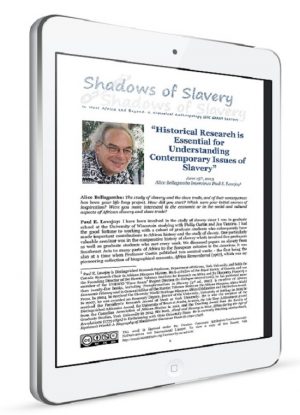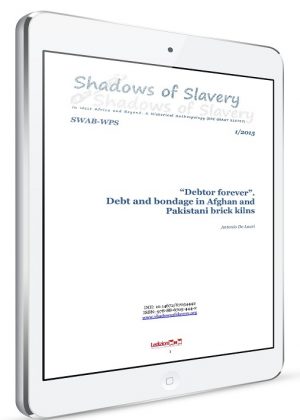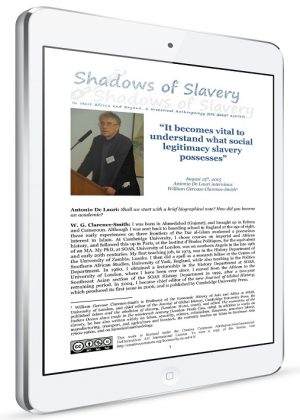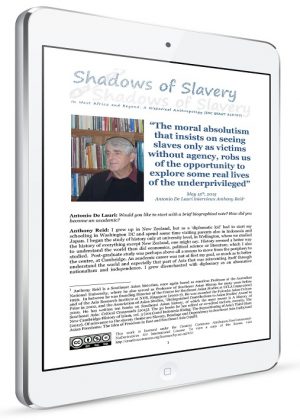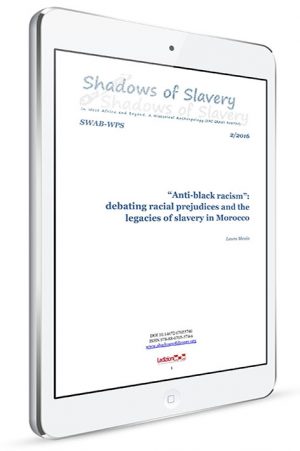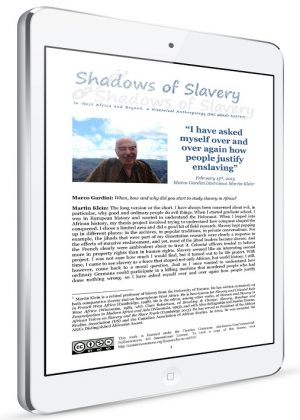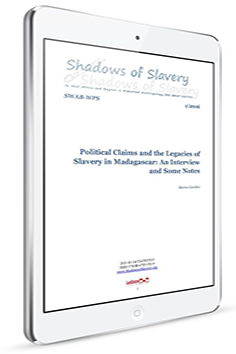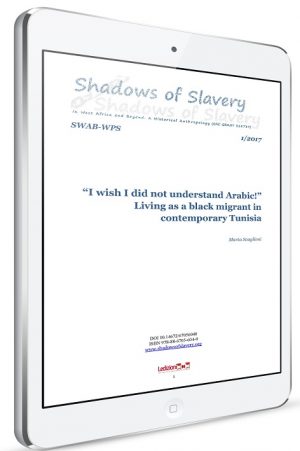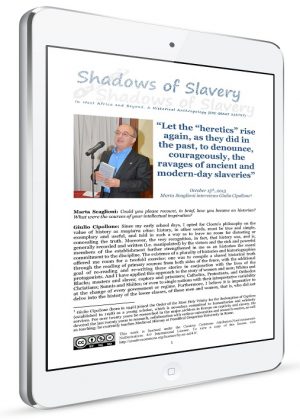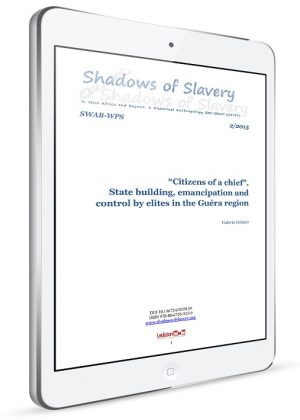
Is slavery history or the hidden predicament of our lives? In the last decades, slavery-like forms of oppression and harsh labor exploitation have been documented throughout the world. Under the pressure of a new abolitionist agenda, national governments and supranational entities like the European Union have set up laws that target human traffic, child labor, sexual slavery and a number of other social and economic practices offensive of the rights and dignity of the person. Repeadtly, scholars, activists and policy-makers have remarked that what is unfolding under our eyes is understandable only by bridging, conceptually and through concrete case-studies, the historical and the contemporary. By studying both the legacies of old slavery and contemporary unfreedoms, SWAB fosters the dialogue between past and present, and among regional and conceptual research traditions that have often developed along separate paths.
The team is directed by Alice Bellagamba and involves one assistant professor, two post-doctoral fellows and five doctoral students with expertise in North Africa (Libya, Tunisia and Morocco), the Middle East (Yemen), West-Africa (Eastern Senegal and Ghana), Central Africa (Chad), Eastern Africa (Somaliland), Indian Ocean (Highlands Madagascar), Central Asia (North Afghanistan) and Europe (Italy). Research includes topics such as agricultural labour, race, politics, human rights, family history, genealogies, trajectories of individual and collective emancipation from social, economic and political marginality. Some of us work on the late nineteenth and early twentieth century to assess what happened to freed slaves and people of slave ancestry in the post-abolition context. Some others consider the historical roots of contemporary human bondage, social discrimination, labor exploitation, political marginality and struggles of emancipation. A lively academic and civic debate addresses the opportunity (or not) to use the notion of slavery in contemporary settings. Definitions do matter, but the research group believes that the scope of discussion must be expanded to include a critical analysis of notions such as ‘dependence’, ‘emancipation’ and ‘freedom’ and of the processes of dehumanization that base the commoditisation and exploitation of human beings in the past and in the present.


